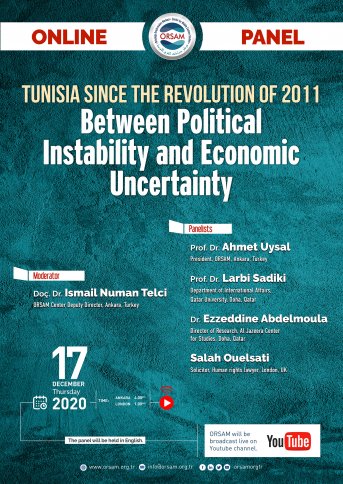
Tunisia: Ten Years Later: Between Political Instability & Economic Uncertainty
On December 17, 2010, Tunisians rose up against corruption, poverty, and political repression, and forced President Zine Al-Abidine Ben Ali to flee the country in January 2011. The success of the popular revolt that came to be known in the media as the “Jasmine Revolution”, inspired a wave of similar protests throughout the region. The origin of the revolt that changed MENA region political landscpae, started after Mohammed Bouazizi, an unemployed 26-year-old, protested government corruption by setting fire to himself outside a municipal office in the town of Sidi-Bouzid in central Tunisia on December 17.
In spite of the political upheaval and ensuing economic and financial turbulence, Tunisian people can feel a ray of hope from the their “Jasmine revolution”. However, political parties and elite are still in the post-coma recovery making sure the ongoing healthy political process will not fall into political regress. Tunisian voters are still believing in their revolt, but they lost trust in political leaders and elite. A lack of credibility in politics is apparent among the voters across the region.
Tunisians are worrying today of political instability and economic uncertainty.
Moderator
İsmail Numan Telci, ORSAM Cnter Deputy Director, Ankara, Turkey
Panelists
Ahmet Uysal, President, ORSAM, Ankara, Turkey
Larbi Sadiki, Department of International Affairs, Qatar University, Doha, Qatar
Ezzeddine Abdelmoula, Director of Research, Al Jazeera Center for Studies, Doha, Qatar
Salah Ouelsati, Solicitor, Human rights lawyer, London, UK
When and Venue: 17 December 2020 - 4.00 p.m. Ankara time, 1.00 p.m. London time, live on Youtube Channel.
Event Language: English






